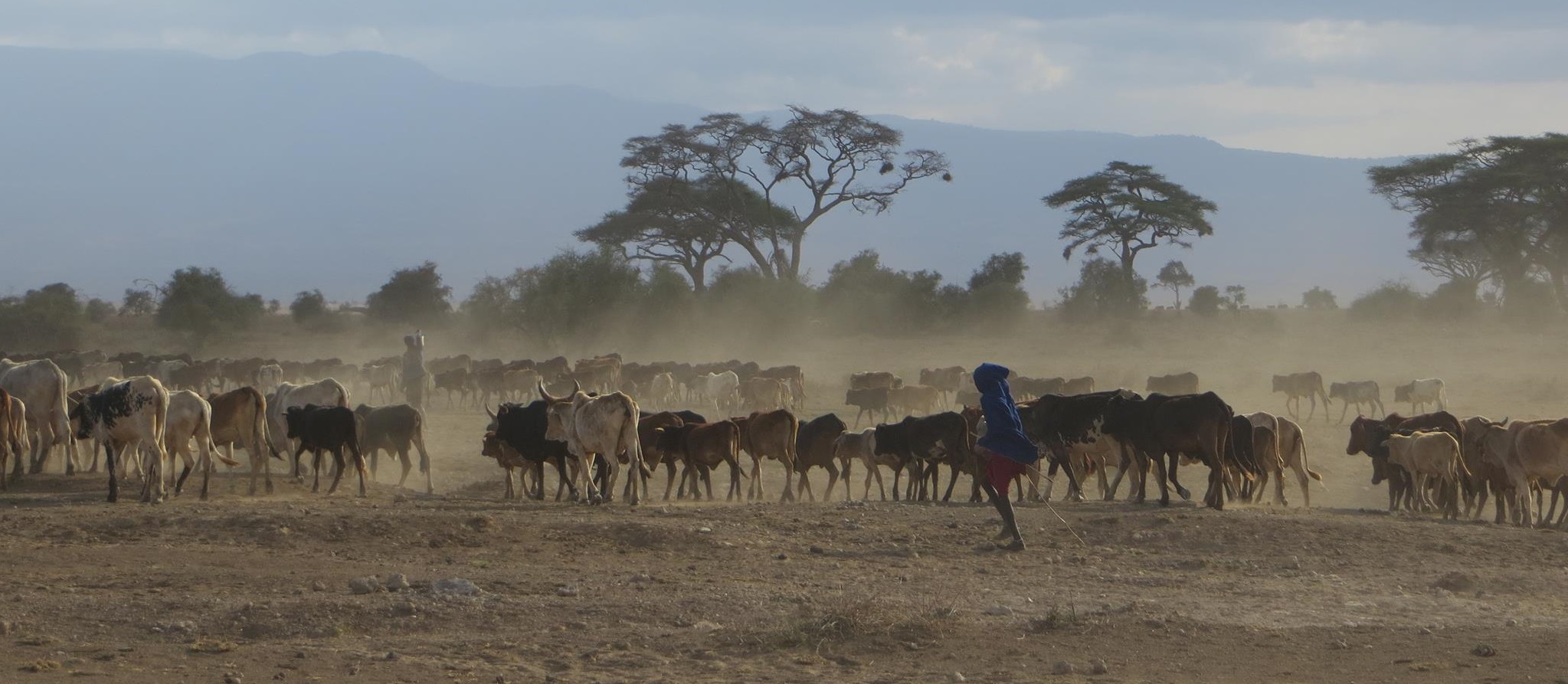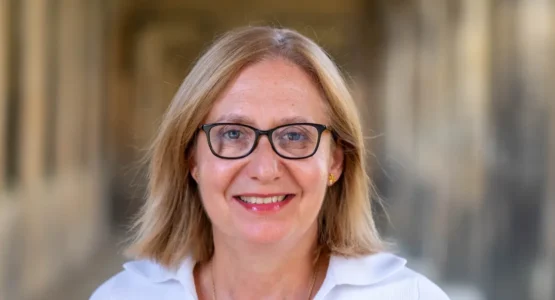Dorien Braam (2018) is Director and Principal Consultant at Praxis Labs. She has previously worked with the United Nations, International Federation of Red Cross and Red Crescent Societies and the Dutch government. Dorien has recently completed a PhD at St John’s focusing on zoonotic diseases in displaced populations. Here she tells us about her experiences of working in international development and shares her current research priorities.
Mine is a rather unconventional academic and professional background. While I grew up dreaming of a career in small animal practice, an open day at the veterinary school convinced me to focus on animal welfare instead; and throughout my childhood and undergraduate studies, I volunteered at various animal welfare organisations. Having studied physics, mathematics and art in high school, I decided to combine these skills and pursue an Architecture degree at Delft University of Technology, following a gap year in Australia. Another semester studying at the National University of Singapore inspired me to gain more experience abroad and, after graduating from my MSc in Delft, I moved to Beijing and then Hong Kong to work as a design architect. The work consisted of large public building design, which unfortunately rarely took into account local context and requirements. The indiscriminate destruction of communities for the construction of shopping malls in particular increasingly bothered me, and I decided to shift my career to international development assistance.
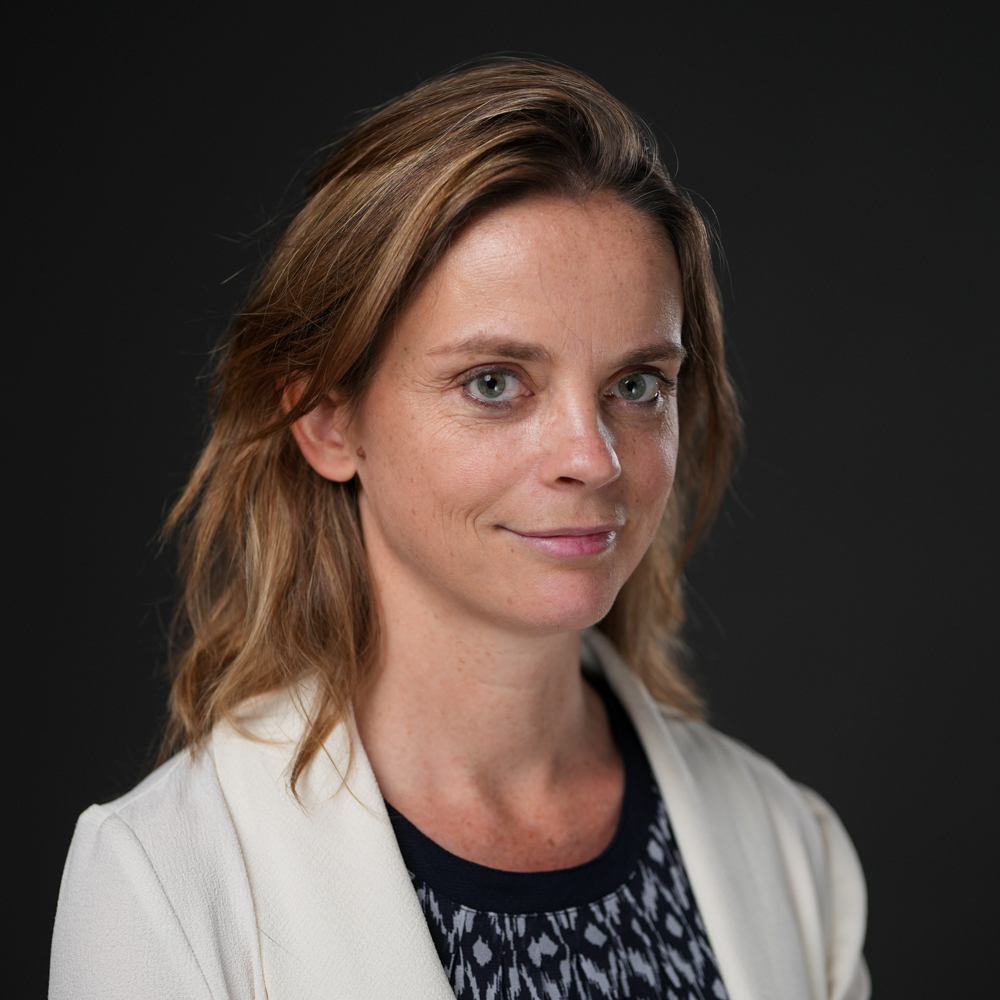
I moved to Ethiopia, where I led a small team in developing the market for small solar home systems. In a country where electricity grids are not yet well developed, small solar systems support farmers and small businesses in developing sustainable livelihoods. They also improve access to education – particularly for girls – as the light can be used to study by once chores are completed in the dark evening hours.
Returning to Europe during the economic crisis of 2008, I struggled to continue in the sector and took up internships, first with the Netherlands Embassy in London, and subsequently with the United Nations Office on Drugs and Crime (UNODC) in Vienna. My supervisor turned out to be a fantastic mentor and as we were working on Afghanistan I was able to support the development of a programme with considerable resources. UNODC in Afghanistan implemented countrywide opium and cannabis surveys, supported the elimination of drug use, smuggling of opium and precursors to and through neighbouring countries, and strengthened law enforcement and criminal justice capacity. In the years following 9/11, government donors committed substantial funding to this work and I was able to return as consultant on one of the projects for which I had drafted a proposal.
After several months in Vienna, I moved to the UNODC country office in Pakistan where I started conducting research for baseline assessments to support programme development and fundraising, including on disaster response, money laundering and human trafficking. It did not take me long to fall in love with this beautiful and complex country, and I ended up staying for two and a half years. During this time a friend who worked with the United Nations Refugee Agency, UNHCR, asked if I was interested in starting our own consultancy company combining our experiences and knowledge on migration-related issues in complex emergencies.
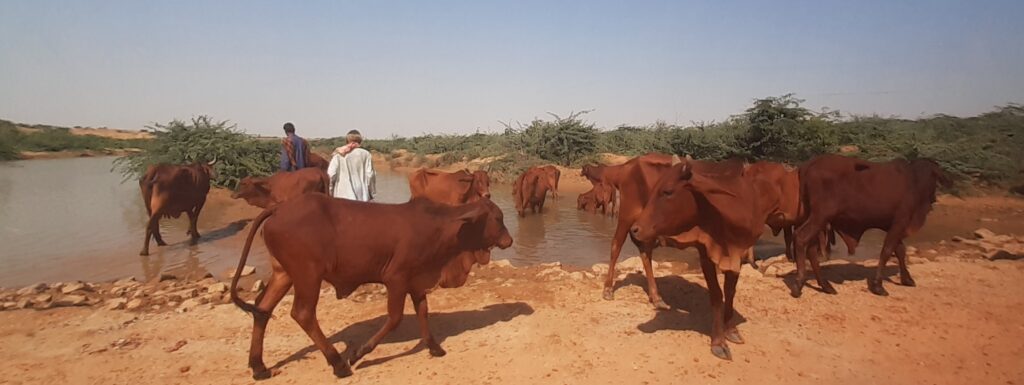
Before committing to working independently, I spent another year and a half with the Netherlands Embassy to Somalia based in Kenya and returned to UNODC, first as regional co-ordinator for a project in Eastern Africa and then as monitoring analyst in Southeast Asia. Meanwhile we had started implementing our first research consultancies, focusing on climate change–related disaster displacement and community resilience in South Asia, for which I conducted fieldwork in the Sundarban Delta in India.
Since then Praxis Labs has developed and implemented independent and collaborative studies into One Health, human rights, protection and labour migration across Africa, Asia and Europe. Our work includes conducting baseline assessments and evaluations in the humanitarian sector, including the refugee responses in Greece and Jordan. All our reports include actionable recommendations, either for policy or practice development, to support organisations and donors in resource allocation and prioritisation, through which we hope to make an impact in developing good practices.
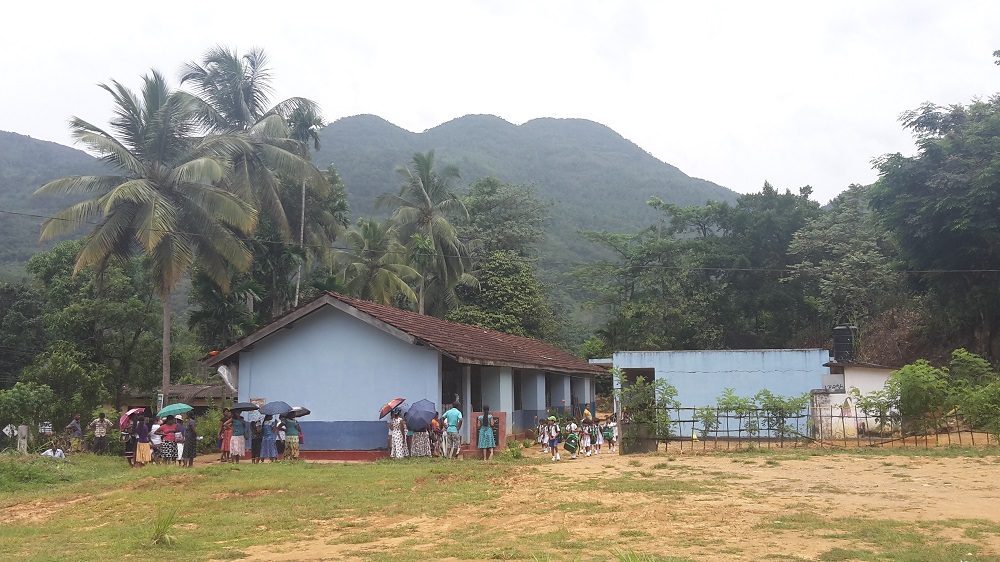
Following a short humanitarian mission as cluster co-ordinator for the International Federation of Red Cross and Red Crescent Societies (IFRC) in Sri Lanka, I developed my PhD proposal based on my experiences and frustrations to consider what I believe to be one of the most overlooked populations within humanitarian emergencies: animals. Combining my passion in animal health and welfare with my professional background in migration and complex emergencies, my PhD investigated zoonotic disease dynamics in displaced populations. Most infectious diseases in humans originate in zoonoses, diseases transmissible between animals and humans, which makes addressing animal health essential for protecting human health. In refugee and relief camps animals are often excluded from these health concerns, disregarding their importance to food security, nutrition, livelihoods and mental health. Animals are seen as a risk factor, rather than as essential to human lives. I conducted fieldwork in Pakistan and Jordan, where I found that zoonotic disease risk and vulnerabilities are much more complex than the presence of animals and human behaviour. Rather, these depend on historical, political and socio-economic constructed inequalities, affecting interspecies health before, during and after displacement.
As I was conducting fieldwork in Jordan, the country closed its borders due to COVID-19. On my return I designed a study into the impact of COVID-19 in Somalia with colleagues from the University of Nairobi and the Centre for Governance and Human Rights at the University of Cambridge, for which we used novel research methods, using a two-way SMS system to conduct a qualitative study. Another study I conducted during my PhD, funded by Cambridge-ALBORADA, was conducted with the National Veterinary Institute in Vom, Nigeria on land use changes and zoonotic disease dynamics among pastoral communities in Jos Plateau.
While pandemic lockdowns affected my studies and time in Cambridge, suddenly there was much more interest in the role of animals in emerging and endemic infectious diseases, and scientists and practitioners increasingly call for the use of systems approaches such as One Health, a collaborative approach between ecosystems, animal and human health. One of Praxis Labs’ most recent projects focused on the distribution of resources among sectors within the One Health approach, which nominally should be equitably distributed between animal, human and environmental health, but remains human-centred.
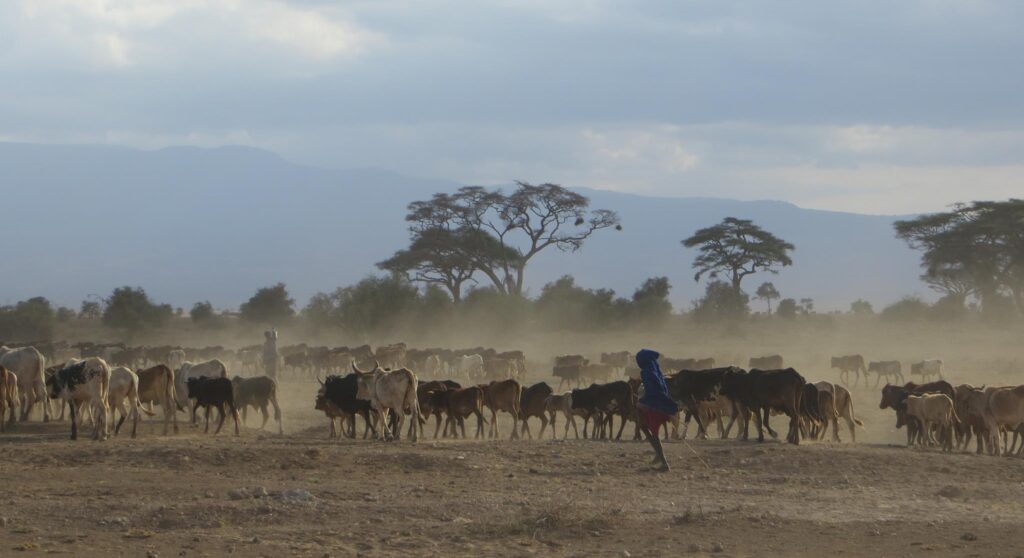
I am planning to continue to advocate for greater inclusion of animals in humanitarian responses and hope to expand this field of work further, while maintaining the connection with practical implementation of recommendations, in particular in light of the climate crisis and more frequent complex emergencies.

